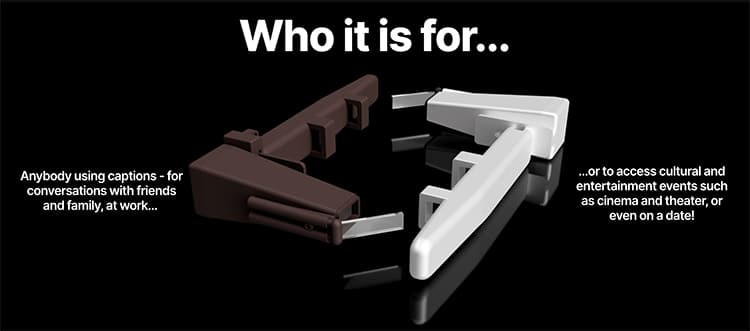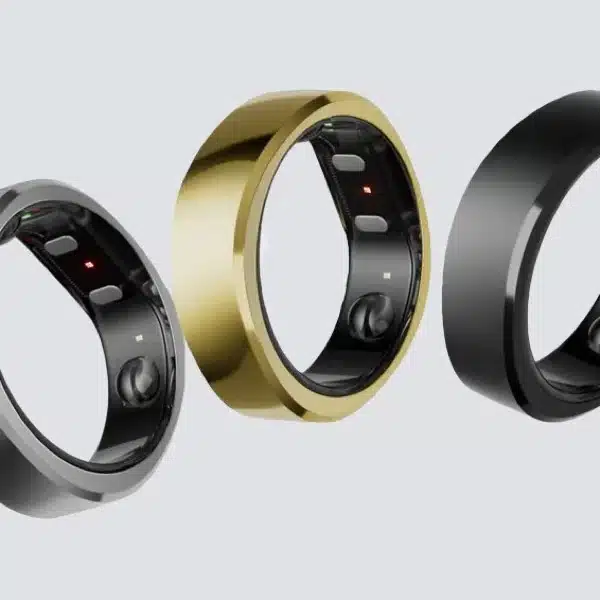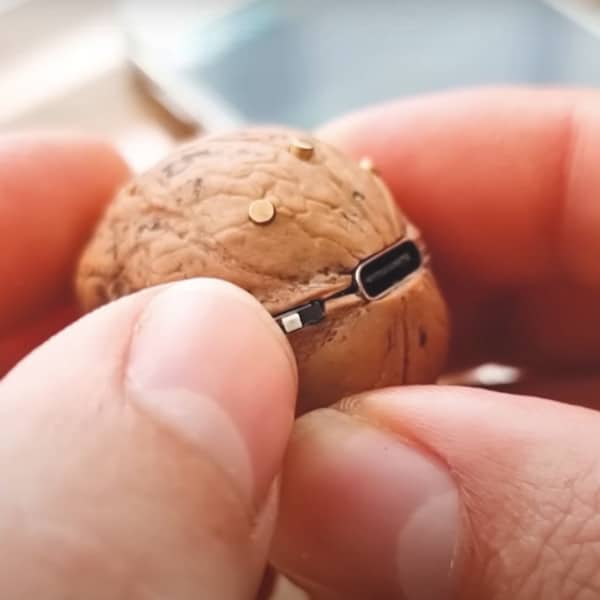People with hearing loss and deaf people communicate in many ways—sign language, lip reading, hearing aids, etc. However, methods such as hearing aids and cochlear implants can be very expensive to acquire. Meanwhile, signing and lip reading require eyes on the speaker. TranscribeGlass is the answer for “comfortable wearable assistive technology device for d/Deaf, Hard of Hearing, elderly, and other people who want to improve their comprehension of spoken communication using captions.” This startup founded by a Stanford/Yale student pair is creating a new way for everyone to engage in the conversation.
CEO and co-founder Madhav Lavakare, Yale ‘25, was inspired to research new ways of communicating when his high school friend dropped out of school due to communication struggles. “It’s 2017,” Lavakare recalled thinking, as explained to The Stanford Daily. “Why isn’t there something that can help my friend participate in conversations in a mainstream setting?” Clearly there was a missing technological niche that expensive solutions such as hearing aids and implants—which are not effective for all—could not fill.
Working with fellow co-founder Tom Pritsky, Yale ‘23, Lavakare started producing prototypes and eventually secured testers from India’s National Association of the Deaf and other deaf communities. He found that a teenager trying to solicit investors in augmented reality (AR) was up against a lot of barriers. However, in 2020 he secured support from the Indian Institute of Technology in Delhi, and funds from the Indian and U.S. government. In 2021, Tom Pritsky, Stanford M.S. ‘23, became a co-founder, bringing a hearing loss perspective to the team. “I really like captions for movies,” Pritsky told the school paper. “I thought it would be fantastic to have them for real life.”
The product is a conduit between affordable speech-to-text converters such as Otter.ai or Google’s Live Transcribe and a simple pair of glasses. The product receives bluetooth messages from the captioning device, and converts those messages to augmented reality (AR) projections within the glasses. The user can change the size of the text to suit the scene. This technology can enable people who are deaf or hard of hearing to look wherever they like while still communicating. It can also assist in environments which may befuddle even hearing aids, such as crowded spaces.
The beta version of TranscribeGlass sold for $55, and eventually it will likely settle at $95. Over 300 people have tested the product during its development, an important factor in a community-serving product. Equalizing access is a worthy goal, because no one should be left out of the conversation.
Stanford students developed a pair of smart glasses to help hearing impaired people called TrascribeGlass.
View this post on Instagram
The device uses AI technology to transcribe speech in real-time, ideally for people who are hard of hearing or deaf.

TranscribeGlass technology. (Photo: TranscribeGlass)
View this post on Instagram
As co-founder Tom Pritsky describes it, TranscribeGlass offers “subtitles for the real world.”
View this post on Instagram
Here's a look at what the device looks like from the wearer's perspective.
TranscribeGlass: Website | Facebook | Instagram
h/t: [The Stanford Daily]
Related Articles:
‘Terminator’ Director James Cameron Playfully Reminds Us That He Warned Us About AI in 1984
Sony Releases Portable Home Theater System With 360 Spatial Sound Mapping
You Can Now Use Google Lens To Search Skin Conditions With Just a Photo
AI Visualizes Drivers Based on Car Brands, Reveals Stereotypes Pushed by Technology






















































































